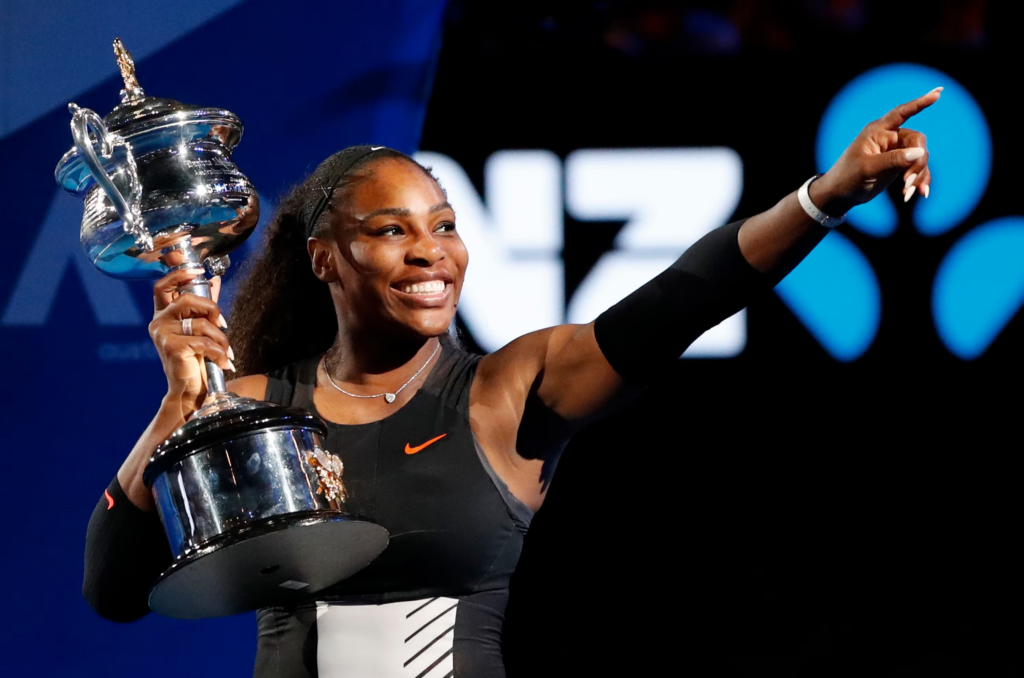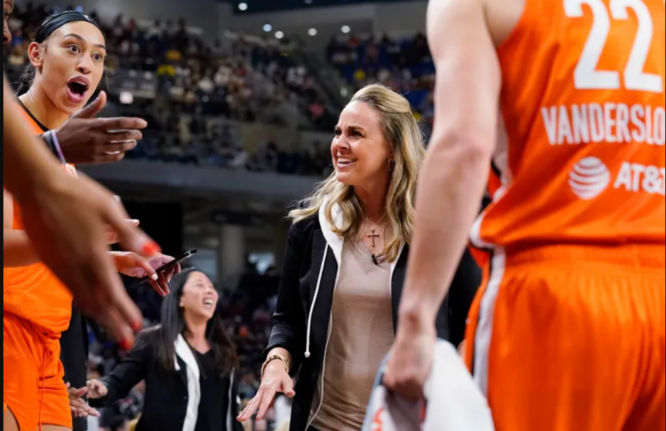In her first five years as a single parent, pro soccer star Jess McDonald was traded six times, making it hard to locate and finance child care in new places. She often had to share a hotel room with a teammate and bring her then-8-month-old kid to practice.
“If I had a bad game, you know, my kid would be blamed for it at times, and it was just like, ‘Oh, was your kid up late at night?’” the U.S. Women’s National Team star said in a recent interview.
Arizona State basketball coach Charli Turner Thorne has three children without maternity leave. New York Liberty head coach and former WNBA player Sandy Brondello delayed to have children until she retired at 38, realizing the challenges she would face if she got pregnant.

In the 27 years since the WNBA, the first women’s professional sports league, was founded, female athletes have faced pay disparities, harassment, and bullying, as well as the challenges of parenthood.
WNBA player Dearica Hamby claimed her coach bullied her for being pregnant.
Vegas Aces Coach Becky Hammon, a six-time WNBA All-Star and league star, denied harassing Hamby and said the player wasn’t traded to the Los Angeles Sparks because she was pregnant. She claimed the transaction was about “freeing up money to sign free agents.”
Still, Hammon said she may have made a “misstep” by asking Hamby about her pregnancy, and she said the WNBA’s rules “regarding pregnant players and how that looks within an organization” need to be better defined, highlighting the challenge of balancing family and professional sports.
Sheryl Swoopes, the first WNBA player to sign in 1997, was pregnant. However, leagues, coaches, players, and sponsors have shown ambivalence to hostility toward pregnant athletes.
In 2019, Olympic runners Allyson Felix and Kara Goucher protested Nike’s wage cuts and termination for pregnancy. Professional women’s leagues have taken years to give its athletes the assistance they need to manage family and career.
McDonald, who revealed her second pregnancy last week, said, “I’ve been walking on eggshells as a mom in this league since Day 1.
McDonald trained until two weeks before giving birth in 2012, before the league promised paid maternity leave. Thorne of Arizona State told the AP she worked two days after giving birth.
Thorne added, “We’re light years ahead of where we were 20-some years ago in terms of people understanding that they have to support women’s rights. “There is pressure on you as the athlete, as the coach, as that person, that woman either starting their family or having kids, to get back to their job” shortly after giving birth.
The 2020 WNBA collective bargaining agreement requires players to negotiate the length of their maternity leave, although they get their full compensation. Players with children under 13 can get up to $5,000 for child care and a paid two-bedroom apartment throughout the season.
A few exceptional, seasoned players who have played eight or more seasons can get up to $20,000 per year for adoption, surrogacy, egg freezing, or other reproductive procedures. Players are limited to $60,000. This is LGBTQ+ athlete-friendly compared to other sectors.
Thorne said, “We’ve made strides and everything,” but the leagues need to do more to help players who become moms.

